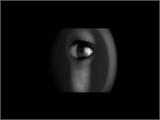The Story of the Abandoned Baby (Part One)
The Story of the Abandoned Baby (Part I)
This is a two-day-old male infant, with a delicate face, his red skin yet to fade. Because he was born with only two fingers on each hand and underdeveloped feet, he was abandoned by his parents in a clump of grass by the roadside. A kind-hearted person found him and brought him to Yuan Lihai's place, which takes care of abandoned babies. Although not wealthy herself, Yuan Lihai has dozens of children living in her humble shack, ranging in age from two days to twenty years old. The children come in all shapes and sizes: some have snow-white hair and skin, others suffer from cerebral palsy and cannot move, some have heads covered in oozing sores, and others crawl on the ground because they cannot walk. There are also deaf and mute children. In short, any type of disability that people can imagine exists here. Of course, there are also healthy children.
The shack is dilapidated and dark, with piles of donated clothes everywhere. Perhaps due to the smell, flies buzz around incessantly. Due to the limited space, regardless of their age, several children share each bed. Especially for the newborns, many of them are now disabled when they arrive. Some are blind, others have heart conditions or other illnesses. The less severe cases might just have a cleft lip, while the more serious ones may have incurable diseases. Standing in the dark, low-ceilinged shack, watching the newly arrived legless baby boy crying loudly, waving his tiny fists no larger than garlic cloves, moving his head around searching for his mother's nipple, and then sucking on his own fist when he cannot find it, made me wonder how any parent could bear to abandon such a helpless and fragile child. He is so small, only as big as an adult's shoe. Despite having a nose, eyes, and mouth, he has no awareness. He doesn't know that he will never find the nipple again; his mother, who gave birth to him and granted him life, has already abandoned him. He himself doesn't realize how weak and delicate he is—so fragile that a gust of wind could take his life, so tender that even a slight lack of care could lead to his death. He doesn't know that he was abandoned in the wild just two days after being born, like a blade of grass, or perhaps even less valued than that, because abandonment for a newborn means death. Yet, he is both unfortunate and fortunate—he was discovered in time and sent to Sister Yuan's place.
He still doesn't know that this place, Singapore, is a paradise for disabled children, the main base where discrimination and abandonment do not exist. Sister Yuan will treat him like her own child, despite the overwhelming number of children here, making the place look like hell on earth. But here, there is love, and here, there is family. With these two things, it is enough.
When I first came here, I couldn't help but burst into tears at the sight of so many abandoned babies—those either without hands, without feet, with heads full of ulcers, suffering from cerebral palsy or cleft lips. My heart broke seeing the faces of these troubled children. Children, this word that tugs at the heartstrings of humanity, these little angels sent by God, these precious beings capable of bringing endless joy, light, and hope, inspiring boundless love, this embodiment of people's hopes and dreams for the future, to whom we dedicate our most beautiful words like "treasure," "baby," "darling," "sweetheart," etc., here, you see not hope, not beauty, not happiness, but infinite sorrow, pain, and torment. For these children may be a lifelong burden and debt, possibly the root cause of a lifetime of poverty and unhappiness, leading their parents to abandon them, perhaps out of despair because the conditions cannot be cured, or perhaps out of poverty, lacking the money for treatment.
People don't realize that among the smaller children, especially the newly arrived infants, the survival rate is very low because they are often abandoned in the wild. This is tolerable in spring, but in summer or winter, such fragile lives cannot withstand the harshness of the world. According to Sister Yuan, some children are brought in during winter covered in snow, and in summer, some are already swarmed by flies. Those who survive are usually those with strong fates, as her place is not well-equipped, just a large shack that leaks rainwater. Due to the large number of children and few caretakers, in winter, bricks are used to hold down the edges of blankets to prevent children from kicking them off and catching colds. Although plenty of clothes are donated, money is still scarce, and she has no funds to pay for medical treatment, despite the hospital being right next door—a luxurious hospital resembling a hotel. However, illness without money means no entry. Because of its proximity to this hospital, there are more abandoned babies here, many of whom were confirmed to have serious illnesses requiring exorbitant medical fees before being abandoned. Though only separated by a wall, one side resembles heaven, the other hell. But this cannot be blamed on the hospital staff, as inability to afford medical treatment is a nationwide issue, a systemic problem rather than an individual one. It's just that Lan考 is poorer, making these problems more prominent. While some at the hospital complain that Sister Yuan affects their image and want to drive her away, many warm-hearted individuals within the hospital help her. Selfishness versus selflessness, cruelty versus kindness, always clash, even within Lan考 Hospital.
Although the current state of national healthcare reform remains unsatisfactory and the difficulty in accessing medical care persists, it is encouraging that although major illnesses cannot be treated, conditions like cleft lips are now being treated for free in many places. Several children at Sister Yuan's have received free treatment at hospitals in Zhengzhou. Although the social impact isn't significant, the significance is immense—it shows that not all medical institutions are driven solely by profit; they still possess conscience. Not all doctors wield knives to harm, some use them to save lives. Recently, I heard that heart disease can also be treated for free, and I sighed with relief. I truly hope that the pace of national healthcare reform accelerates, allowing hospitals across the country to be less luxurious and medical expenses to be lower, so that everyone who falls ill can receive treatment and die in a hospital instead of waiting at home. More importantly, I hope knowledge about eugenics spreads like sunlight to every village and remote area, including those planning to get married. Naturally, my greatest hope is that medical insurance coverage prioritizes children and infants—the group most in need of protection.



